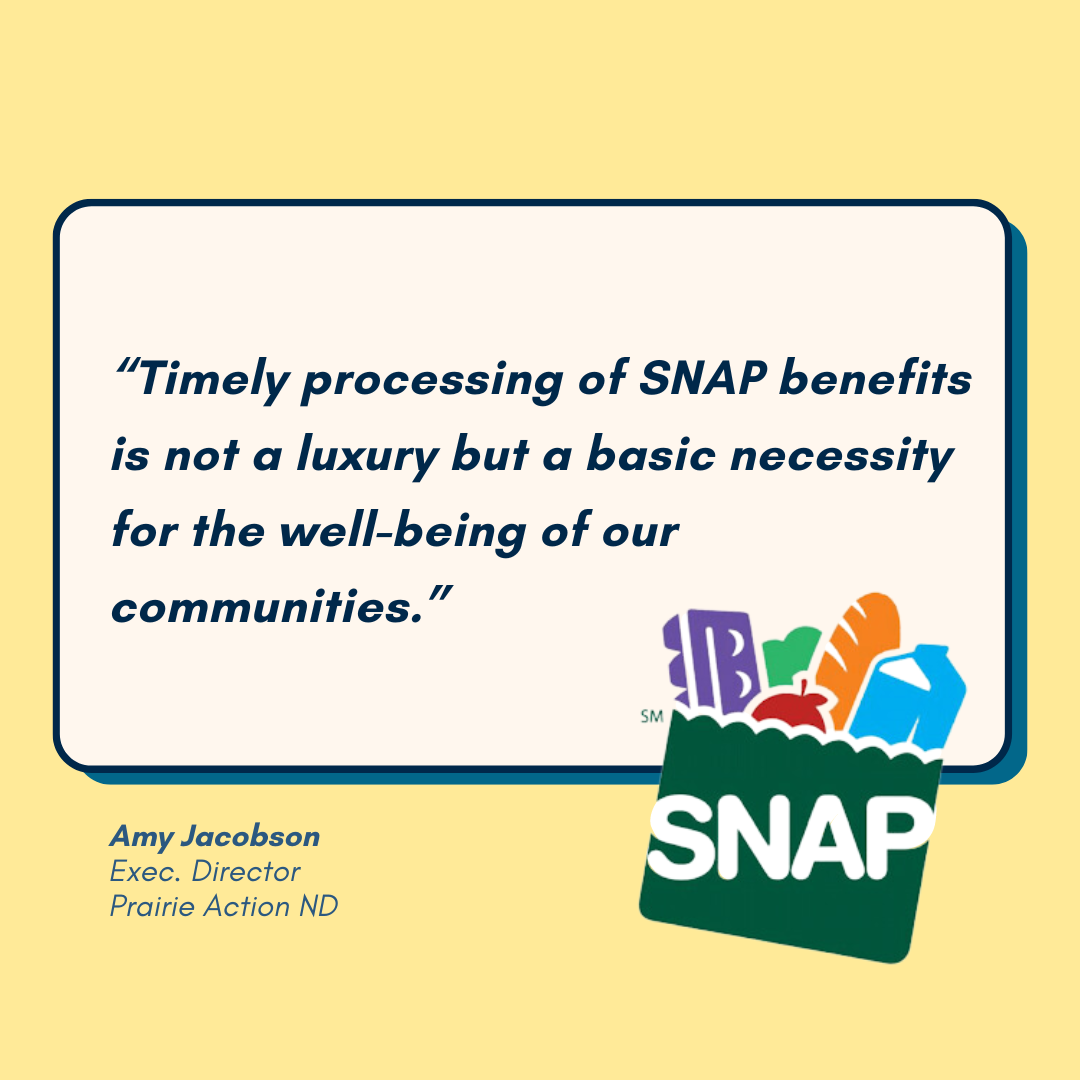No North Dakotan Should Have To Go Hungry Due to Bureaucratic Inefficiencys

By: Amy Jacobson, Executive Director,
February 22nd, 2024
Governor Burgum’s administration continues to fail to meet the needs of North Dakotans most vulnerable. There are deep concerns regarding the current state of Supplemental Nutrition Assistance Program (SNAP) benefits processing in our state. KFGO reporter Tasha Carvell’s article “N.D. SNAP administration under scrutiny by feds as denial errors, application processing times rise” highlights alarming deficiencies, ranking our administration’s processing timeliness at a disheartening 42nd in the nation. This delay in providing crucial assistance means that families across North Dakota are enduring unacceptable waits to receive the support they need to put food on the table.
Under the Burgum Administration, it is distressing to note that over 50% of SNAP applicants are being wrongly denied the benefits they are entitled to. This pattern of ineffective implementation extends beyond SNAP, encompassing various economic assistance programs crucial for the well-being of North Dakotans, including Housing Stabilization, Child Care Assistance, and Heating Assistance. The consequences of these delays and denials are dire, leaving families and individuals in our community vulnerable and struggling.
Of particular concern is the impact on those most in need. With 69% of SNAP participants being families with children and over 30% consisting of the elderly, the failure to efficiently administer these vital economic support programs is simply unacceptable. No North Dakotan should have to go hungry due to bureaucratic inefficiency.
The Burgum administration must take immediate and decisive action to rectify these shortcomings and undertake comprehensive reforms to ensure the efficient delivery of all economic assistance programs in our state.
Timely processing of SNAP benefits is not a luxury but a basic necessity for the well-being of our communities. We cannot continue to tolerate a system that fails to meet the needs of those who depend on it the most.
